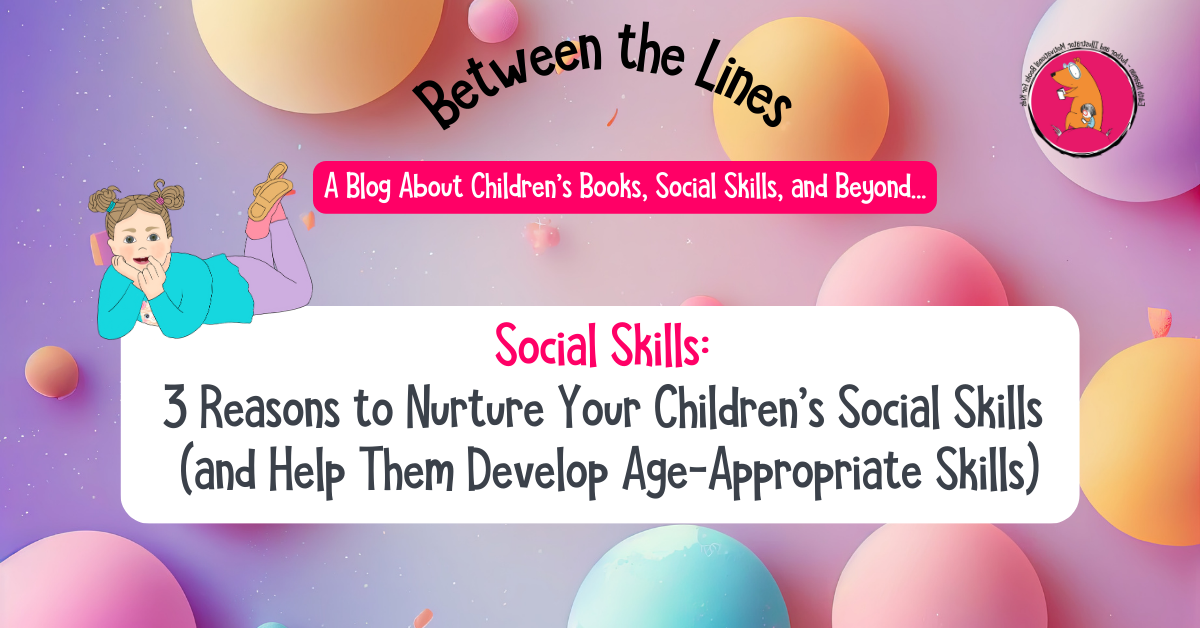When we talk about social skills in young children, we mean their ability to communicate effectively and harmoniously with others. This includes communication, empathy, cooperation, and the ability to understand and manage their emotions. These skills are high on the list of essential components for children’s development, helping them build friendships and grow properly.
Sounds familiar? Are your children already equipped with the skills to develop healthy relationships, resolve conflicts, and be attentive to others? And how can you help them develop the social skills important for their happiness and success? This article will answer those questions. You are welcome to read, apply, and share.
Based on the number of internet searches, the topic of “social skills in children” concerns many young parents who want to ensure their children start life on the right foot.
As social skills develop through their growth, let us first look at the major skills children should adapt in their early years.
3 Important Social Skills for Children Aged 3-8
- Sharing and Waiting Their Turn (Ages 3-4) – At this age, children understand the concept of sharing and waiting their turn during play. This basic social skill lays the foundation for future cooperation and teamwork.
And this is important because sharing (like sharing a toy) and waiting for their turn (like during an activity at the playground) teaches children patience, fairness, and the joy of giving – essential for building friendships later on.
- Empathy (Ages 5-6) – At this age, children start to recognize and understand the feelings of those around them. For example, they may express concern for a sad friend or share in the joy of another friend’s success.
And this is important because empathy helps children build strong and supportive relationships, encourages kindness, and helps prevent bullying through understanding and compassion. - Effective Communication (Ages 7-8) – At this age, children are expected to express their thoughts and feelings clearly and, just as importantly, listen to others. They can follow instructions, ask questions, and take part in meaningful conversations.
And this is important because effective communication helps children express their needs, resolve conflicts, and collaborate with peers. It’s the key to creating successful interactions in all areas of life.
3 Strategies to Help Your Children Develop Important Social Skills
- Be a Role Model – When you want to teach your children a desirable behavior, be their model. Want to teach them the importance of sharing? Occasionally, share a snack and explain how shared enjoyment enhances your happiness. Want to strengthen their Empathy? Demonstrate what empathy is by showing concern when someone around you is hurt or sad and explain how to comfort or offer help.
And this is important because children learn best by watching adults, especially those close to them (or in four words: “children see – children do”). - Include Supportive Activities in Their Playdates – When planning playdates for your children with friends their age, include activities that allow them to practice cooperation (like building a puzzle together) or taking turns (like board or card games).
And this is important because playdates provide children with practical opportunities to practice social skills in a familiar and planned environment, leveraging the opportunity for added value. - Reinforce Desirable Behavior with Positive Feedback and Explanation – Playdates, like any social activity, are excellent opportunities to praise children when they share toys with friends or show empathy when others are sad or disappointed during play. Praise not only the outcome but also the effort. Instead of “Well done,” say, “I loved how you shared your colors with your friend. That was very generous,” or “I can see you put a lot of attention into planning your drawing.” It’s equally important to praise positive behavior (and not just comment on less positive behavior). Instead of “Stop fighting already,” say, “I really enjoyed seeing your cooperation. It looks like you enjoyed it, too.”
And this is important because positive reinforcement encourages children to repeat desirable behaviors, helps them understand the value of their actions, and boosts their self-confidence.
3 Practical Tools to Help Your Children gain and Strengthen Their Social Skills
- Role-Playing Games – Create simulation scenarios with your children that allow them to experience and translate situations requiring social skills. For example, you can pretend to be in a classroom, on the playground, or having a conversation with peers, and practice relevant social interactions like sharing, expressing emotions, or problem-solving.
And this is important because role-playing helps children prepare for the “real thing,” making them feel more confident in real-time and strengthening their sense of capability to handle changing situations.
- Mindfulness Activities – Mindfulness is a type of mental training that helps reduce stress and anxiety through breathing and focusing on the present moment (without drifting into past events or worrying about future events). You can teach your children simple mindfulness exercises, like deep breathing or focusing on the here and now. For example, let your children close their eyes and breathe deeply while thinking of a calm and peaceful place where they feel relaxed.
And this is important because the relaxation that mindfulness creates helps children manage emotions, reduce stress, stay calm in social situations, and be more attentive to those around them.
- Positive Affirmations – Positive affirmations are a wonderful tool for embedding positive messages in your children’s subconscious. Tailor the affirmations to the messages you and they want to strengthen, like “I am a good friend,” or “I successfully handle emotions.”
And this is important because positive affirmations help build children’s self-image and resilience. They boost their social confidence and prepare them for more positive social interactions in advance.
Bottom Line
Developed social skills in young children allow them to communicate effectively and harmoniously with others, including good communication, empathy, cooperation, and more.
As you have learned from the article, you can strengthen your children’s social skills through personal example, reinforcing social gatherings, or empowering desirable behavior with positive reinforcement. You can use practical tools such as role-playing games, mindfulness relaxation techniques, or daily use of positive affirmations.
These and more will help you nurture and expand your children’s social skills, paving the way for them to become open, attentive, and empathetic individuals who can build meaningful relationships throughout their lives.
“The Girl Who Brought Spring Back”
Listening, caring, and empathy, joined by determination and persistance, are integral parts of little Jordana’s social skills as she helps her beloved tree restore its foliage – against all odds.
This book is the first in the “Little Heroes” series, providing readers with a glimpse into important life skills in a lighthearted manner, combining eye-catching illustrations, precise rhyming, and a catchy rhythm. It is a heartwarming book about empathy, determination, and persistence that will equip your children with useful tools to face challenges and failures with listening, caring, and lots of goodwill.
Now It’s Your Turn
Did you enjoy the post? Share it with your friends.
Do you want to strengthen your children’s ability to cope successfully with challenges and difficult situations?
Click the pink button below and purchase the book “The Girl Who Brought Spring Back”.

